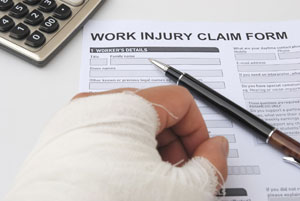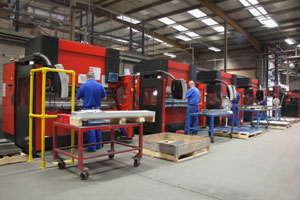Can You Be Denied Workers’ Compensation if You Contributed to Your Own Injury?
 Every state, including New Jersey, has workers’ compensation laws, designed to provide benefits to people who have been hurt on the job. Workers’ compensation programs are designed to be a compromise for both employees and employers, eliminating the need for an injured worker to incur the time and expense of a lawsuit, and simultaneously shielding employers from exorbitant jury awards. Worker’s compensation benefits are typically designed to address instances where the employer was careless or negligent in some respect. But what if you are an injured worker, and the accident was caused in part by your own negligence? Can you be denied benefits?
Every state, including New Jersey, has workers’ compensation laws, designed to provide benefits to people who have been hurt on the job. Workers’ compensation programs are designed to be a compromise for both employees and employers, eliminating the need for an injured worker to incur the time and expense of a lawsuit, and simultaneously shielding employers from exorbitant jury awards. Worker’s compensation benefits are typically designed to address instances where the employer was careless or negligent in some respect. But what if you are an injured worker, and the accident was caused in part by your own negligence? Can you be denied benefits?
As a general rule, the worker’s compensation system is a no-fault system. This means that, in most instances, eligibility for benefits does not depend on who was at fault. There are exceptions, however. Many states bar or limit claims that result from the employee’s wrongful acts, including injuries that are intentionally self-inflicted, or injuries resulting from a fight or “horseplay” unrelated to the employee’s job. As a general rule, workers who injure themselves while drunk or under the influence of controlled substances will find it difficult to get workers’ compensation benefits.
In most instances, when the employee’s actions or behavior contributed to the injury, the court will look at whether there were other factors as well that caused the accident. Typically, courts will allow a worker to receive benefits unless the employer can show that the worker’s wrongful conduct was the sole cause of the injury.
Contact Our Office
At Taylor & Boguski, we bring more than 70 years of combined legal experience to injured people throughout New Jersey. For a free initial consultation, contact our office online or call us at 856-234-2233.


 Serious, catastrophic job-related injuries may qualify you for temporary total, temporary partial, permanent total, or partial disability benefits. If your injuries prevent you from returning to work, you may be eligible to receive one of the following kinds of
Serious, catastrophic job-related injuries may qualify you for temporary total, temporary partial, permanent total, or partial disability benefits. If your injuries prevent you from returning to work, you may be eligible to receive one of the following kinds of  An employee left unable to work due to a workplace injury is in a difficult situation, but may still have options to collect an income to support him or herself.
An employee left unable to work due to a workplace injury is in a difficult situation, but may still have options to collect an income to support him or herself.